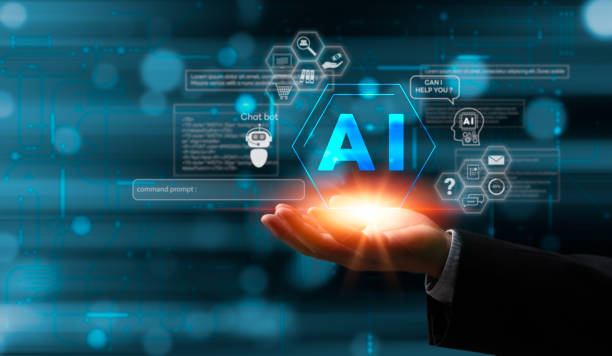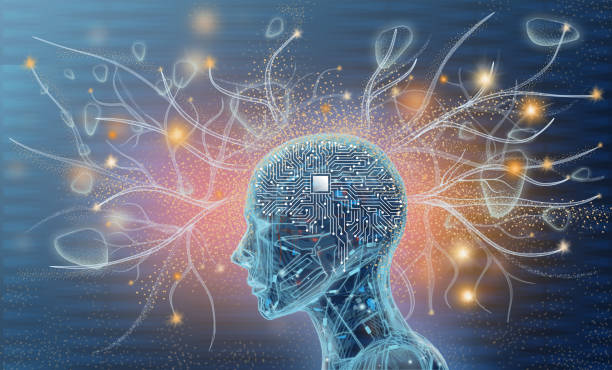What is Artificial Intelligence and Why Does it Affect Our Career Future?
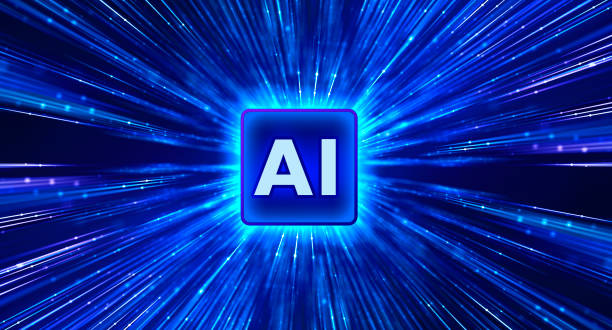
Artificial Intelligence (#AI) refers to the ability of a computer system to perform tasks that typically require human intelligence.
These tasks include learning, reasoning, problem-solving, natural language understanding, and pattern recognition.
In short, AI strives to enable machines to think and act like humans.
The impact of artificial intelligence on the future of work is due to its ability to automate many repetitive and routine tasks.
This can lead to the displacement of some jobs, but at the same time, it creates new opportunities for jobs that require human skills such as creativity, critical thinking, and emotional intelligence.
Understanding the role of artificial intelligence in changing the future of work is very important.
This technology not only replaces existing jobs but also creates new jobs that did not exist before.
For example, machine learning specialists, data analysts, and AI ethics specialists are currently in high demand.
Adopting and adapting to these changes will be key to success in the future world of work.
Management consulting firms like McKinsey & Company estimate that AI can generate significant growth in productivity and global GDP, but this requires investment in workforce training and retraining.
Does your company’s website perform as befits your brand? In today’s competitive world, your website is your most important online tool. Rasaw, specializing in professional corporate website design, helps you to:
✅ Gain customer credibility and trust
✅ Convert website visitors into customers
⚡ Get a free consultation!
Which Jobs Are Most At Risk of Automation?
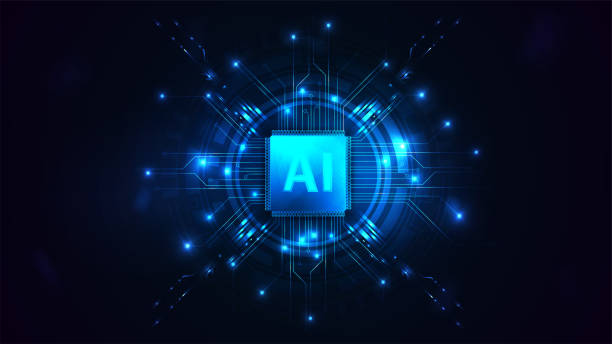
Jobs most at risk of automation are typically those that involve repetitive, routine, and rule-based tasks.
These jobs include clerical work, machine operators, truck drivers, production line workers, and entry-level accountants.
The U.S. Bureau of Labor Statistics reports that clerical and administrative support occupations will experience the largest decline in the next ten years due to automation.
However, this does not mean that these jobs will disappear completely.
Many of these jobs will change and require new skills.
For example, accountants may need to learn how to use AI software to analyze data and provide financial advice.
Truck drivers may need to learn how to monitor autonomous systems.
To better understand the impact of automation on the future of AI careers, it’s important to note that automation does not necessarily mean job loss, but rather a change in the nature of the job.
Individuals who are able to learn new skills and adapt to changes will have a greater chance of maintaining and advancing their careers.
One way to reduce risk is to develop soft skills such as critical thinking, problem-solving, and communication.
These skills are currently highly valued in the workplace and are expected to become even more important in the future of work.
What New Jobs Will AI Create?
![]()
Artificial intelligence not only changes existing jobs but also creates new jobs that did not exist before.
These jobs include machine learning specialists, data scientists, robotics engineers, AI ethics specialists, cybersecurity analysts, and data management specialists.
For example, machine learning specialists design and develop algorithms that enable machines to learn from data.
Data scientists analyze data to identify patterns and trends that can be used to improve decision-making.
In addition to technical jobs, AI also creates new jobs in non-technical fields.
For example, AI ethics specialists help develop and implement ethical principles for the use of AI.
Change management specialists help organizations adapt to changes brought about by AI.
Training and development specialists help individuals learn new skills needed for the future of work.
These new jobs require a combination of technical and soft skills.
For example, AI ethics specialists must have a deep understanding of AI as well as the ability to think critically and communicate effectively.
To take advantage of the new job opportunities that AI creates, you need to acquire the necessary skills.
This may include university education, online courses, internships, or on-the-job training.
It is also important to continuously update your knowledge and skills, as AI is rapidly advancing.
| Job Title | Description |
|---|---|
| Machine Learning Specialist | Designing and developing machine learning algorithms |
| Data Scientist | Analyzing data to identify patterns and trends |
| Robotics Engineer | Designing, building, and maintaining robots |
How Can We Upgrade Our Skills for the AI-Driven Career Future?
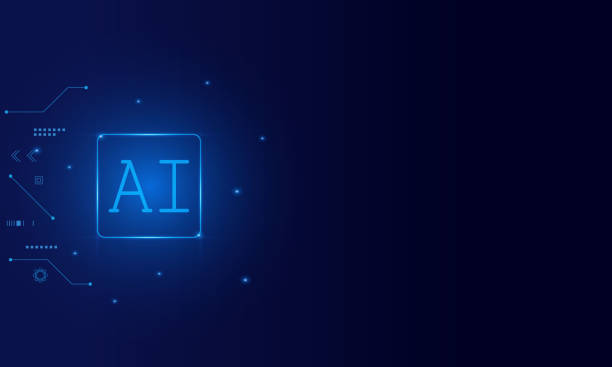
To upgrade your skills for the AI-driven career future, you need to focus on developing both technical and soft skills.
Technical skills include knowledge of programming, machine learning, data science, robotics, and cybersecurity.
Soft skills include critical thinking, problem-solving, creativity, emotional intelligence, communication, and collaboration.
To acquire these skills, you can use various resources.
These resources include universities, colleges, online courses, internships, on-the-job training, and books and articles.
It is also important to participate in practical projects and gain experience.
This will help you apply your skills in practice and gain a better understanding of the challenges and opportunities in this field.
In addition, you need to continuously update your knowledge and skills, as AI is rapidly advancing.
This may include attending conferences and seminars, studying scientific articles, and following the latest news and developments in the field.
Coursera and edX offer numerous online courses in artificial intelligence that can be helpful for skill development.
Still don’t have a corporate website and are missing out on online opportunities? With professional corporate website design by Rasaw,
✅ Double your business’s credibility
✅ Attract new customers
⚡ Free consultation for your corporate website!
The Role of Education in Preparing the Workforce for the Future of Work
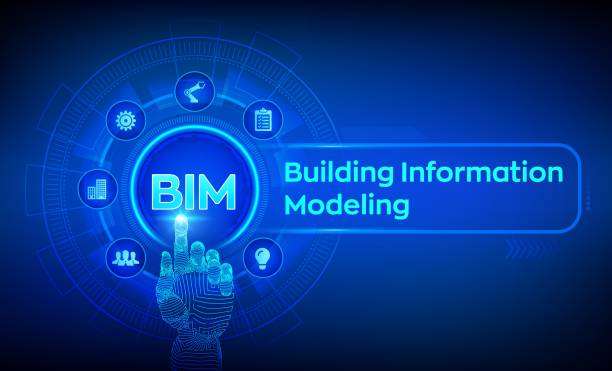
Education plays a vital role in preparing the workforce for the future of work.
Educational systems must update their curricula to teach students the knowledge and skills required to work in the world of artificial intelligence.
This includes teaching programming, machine learning, data science, robotics, and cybersecurity.
In addition to teaching technical skills, educational systems should also focus on developing soft skills.
These skills include critical thinking, problem-solving, creativity, emotional intelligence, communication, and collaboration.
These skills help individuals adapt to changes brought about by AI and perform more effectively in the workplace.
It is also important for educational systems to provide opportunities for lifelong learning.
Artificial intelligence is rapidly advancing, so individuals must continuously update their knowledge and skills to remain competitive in the future of work.
The role of governments and international organizations in supporting workforce education and retraining for the future of work is very important.
This support can include investment in training programs, providing scholarships and student loans, and creating internship and on-the-job training opportunities.
For example, the European Union has several programs to support education in artificial intelligence.
Ethical and Social Challenges of AI in the Workplace

Artificial intelligence creates numerous ethical and social challenges in the workplace.
One of these challenges is the issue of discrimination.
AI algorithms can unintentionally be discriminatory if they are trained on biased data.
For example, a hiring algorithm might unintentionally prefer male applicants over female applicants if it was trained on historical hiring data that shows men were more often hired for managerial positions.
Another challenge is the issue of privacy.
AI can be used to collect and analyze data about employees.
This data can include personal information, work performance, and online activities.
The collection and use of this data can raise concerns about privacy and employee surveillance.
To address these challenges, organizations must establish ethical principles and guidelines for the use of AI in the workplace.
These principles should include aspects such as transparency, fairness, accountability, and respect for privacy.
It is also important to educate employees about how AI is used in the workplace and give them opportunities to voice their concerns.
Furthermore, governments and international organizations must create laws and regulations to govern the use of AI in the workplace.
These laws should include provisions such as preventing discrimination, protecting privacy, and ensuring accountability.
Non-governmental organizations like the Electronic Frontier Foundation are working to protect digital rights and privacy and can play an important role in shaping AI-related policies.
The future of AI careers depends on adhering to ethical considerations.
How Businesses Can Use AI to Improve Productivity and Create Competitive Advantage?
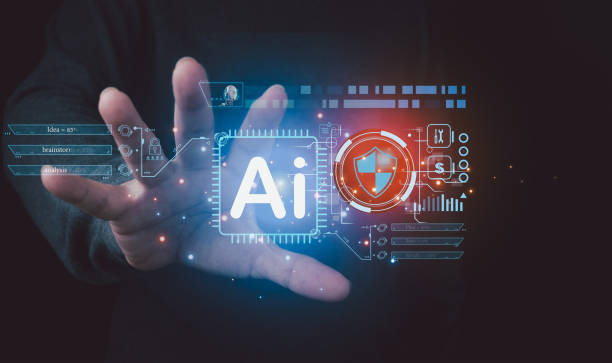
Businesses can use artificial intelligence to improve productivity and create competitive advantages in various areas.
One such area is the automation of business processes.
AI can be used to automate repetitive and routine tasks, which allows employees to focus on more important and strategic tasks.
Another area is improved decision-making.
AI can be used to analyze data and provide insights that help managers make better decisions.
For example, AI can be used to predict demand, identify customer purchasing patterns, and optimize pricing.
In addition, AI can be used to improve the customer experience.
AI can be used to provide personalized customer service, answer customer questions, and resolve customer issues.
For example, chatbots can be used to provide 24/7 customer support.
For businesses to benefit from AI, they must have a comprehensive AI strategy.
This strategy should include identifying opportunities to use AI, collecting and managing data, training employees, and fostering a culture of innovation.
Accenture offers solutions to help businesses deploy and optimize AI.
| AI Application Area | Example |
|---|---|
| Process Automation | Automating data entry |
| Improved Decision-Making | Demand forecasting |
| Enhanced Customer Experience | 24/7 customer support |
The Role of Governments in Supporting AI Development and Managing Its Impact on the Labor Market
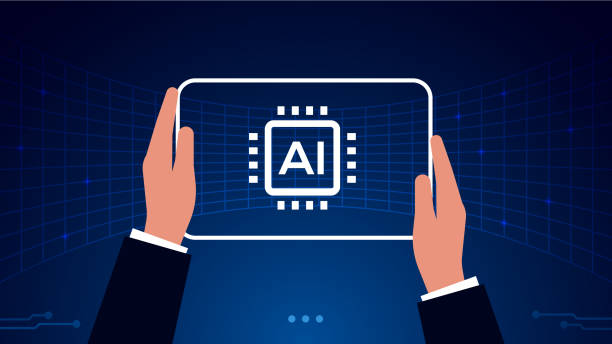
Governments play an important role in supporting the development of artificial intelligence and managing its impact on the labor market.
One such role is investing in AI research and development.
Governments can help accelerate innovation in this field by providing funding for research and development projects.
For example, the U.S. National Science Foundation allocates significant funding for AI research.
Another role is creating a suitable regulatory environment.
Governments must create laws and regulations that support the responsible development of AI and protect the rights and interests of individuals.
These laws should include provisions such as preventing discrimination, protecting privacy, and ensuring accountability.
In addition, governments should support workforce education and retraining.
Governments can help individuals learn new skills required for the future of work by providing training programs, scholarships and student loans, and creating internship and on-the-job training opportunities.
Governments can play an important role in supporting AI startups and nascent businesses.
This support can include providing funding, consulting, and access to new markets.
Overall, the future of AI careers requires cooperation between governments, the private sector, and civil society to fully harness the benefits of this technology and prevent its risks.
Do you dream of a thriving online store but don’t know where to start?
Rasaw is your comprehensive solution for e-commerce website design.
✅ Attractive and user-friendly design
✅ Increased sales and revenue⚡ Get a free consultation
Case Study of Companies That Have Successfully Used AI to Improve Performance and Create New Job Opportunities
![]()
Several companies have successfully used artificial intelligence to improve performance and create new job opportunities.
One such company is Amazon.
Amazon uses AI to improve warehousing processes, personalized product recommendations, and customer service.
This has led to increased productivity, reduced costs, and an improved customer experience.
Amazon has also created new job opportunities in fields such as machine learning, data science, and software engineering.
Another company is Google.
Google uses AI to improve its search engine, online advertising, and cloud services.
This has led to increased revenue, improved accuracy, and increased customer satisfaction.
Google has also created new job opportunities in fields suchs as machine learning, data science, and software engineering.
The third company is Netflix.
Netflix uses AI for personalized movie and TV show recommendations, optimizing streaming quality, and fraud prevention.
This has led to increased customer satisfaction, reduced churn, and increased revenue.
Netflix has also created new job opportunities in fields such as machine learning, data science, and software engineering.
These companies demonstrate that AI can be used to improve performance and create new job opportunities across various industries.
The key to success is having a comprehensive AI strategy, collecting and managing data, training employees, and fostering a culture of innovation.
Another example of successful AI usage is Tesla, which uses AI to develop self-driving cars and clean energy systems.
AI Career Future Predictions and Strategies for Adapting to Upcoming Changes
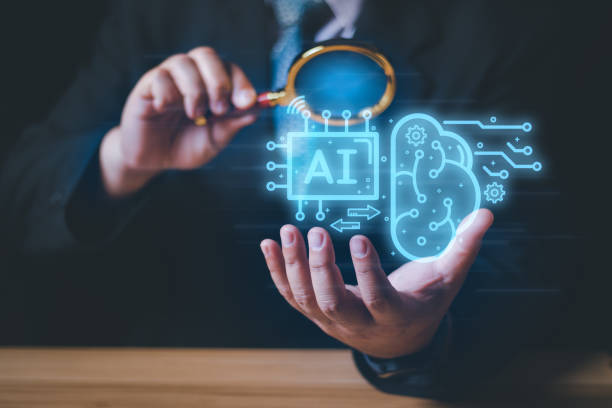
The future of AI careers indicates that this technology will become increasingly integrated into our lives.
AI is expected to have a significant impact on the labor market, making some jobs obsolete and creating new ones.
To adapt to these changes, individuals must continuously upgrade their skills and be committed to lifelong learning.
It is predicted that jobs requiring human skills such as creativity, critical thinking, problem-solving, and emotional intelligence will become more valuable in the future of work.
Jobs requiring technical skills such as programming, machine learning, data science, and robotics are also expected to be in high demand.
The future of AI careers and its advancements require continuous updates.
To remain competitive in the future of work, you must continuously update your knowledge and skills.
This may include participating in online courses, internships, on-the-job training, and studying scientific articles.
It is also important to participate in practical projects and gain experience.
Furthermore, you should look for opportunities to use AI in your work.
This will help you become familiar with this technology and enhance your skills in this area.
For example, you can use AI tools to automate repetitive tasks, analyze data, and improve decision-making.
The future of AI careers is bright but requires planning and readiness.
Frequently Asked Questions
| Question | Answer |
|---|---|
| What impact will AI have on the future job market? | AI will automate repetitive jobs but will also create new and more complex jobs in areas such as developing, maintaining, and training AI systems. |
| Which jobs are most at risk of being replaced by AI? | Jobs involving repetitive, rule-based tasks with low need for creativity or emotional intelligence, such as some manufacturing jobs, data entry, and simple customer service, are most at risk. |
| What skills are essential for success in the future of work with AI? | Skills such as critical thinking, complex problem-solving, creativity, emotional intelligence, data literacy, the ability to work with AI, and lifelong learning are of high importance. |
| Will AI lead to widespread unemployment? | Some jobs will disappear, but history shows that new technologies, instead of causing widespread unemployment, reshape the job market and create new jobs. Adaptation and retraining are crucial. |
| What new job opportunities are emerging with AI? | Jobs such as Machine Learning Engineer, Data Scientist, AI Ethicist, Human-AI Interaction Designer, and Digital Transformation Consultant are among the new opportunities. |
| What is the role of education in preparing for the future of work with AI? | Education must focus on developing soft skills, computational thinking, digital literacy, and the ability for continuous learning to prepare individuals for future changes. |
| How can I prepare myself for changes in the job market caused by AI? | You can prepare by learning new skills related to AI and data, strengthening soft skills, developing critical and creative thinking, and embracing lifelong learning. |
| Will AI ethics become an important career field? | Yes, given growing concerns about biases, privacy, and automated decision-making in AI, the role of AI ethics specialists will become crucial to ensure its responsible development. |
| What is the importance of human-AI collaboration in the future of work? | Human-AI collaboration, rather than competition, will shape the future of the job market. AI can be a tool to increase productivity and allow humans to focus on more complex and creative tasks. |
| Which industries will be most affected by AI? | Almost all industries will be affected, but areas such as healthcare, finance, transportation, manufacturing, education, and customer service are pioneers in AI adoption and transformation. |
And other services of Rasaw Web Advertising Agency in advertising
- Smart Link Building: A novel service to increase customer behavior analysis through precise audience targeting.
- Smart Conversion Rate Optimization: A fast and efficient solution for digital branding focusing on SEO-driven content strategy.
- Smart Digital Branding: Transform online growth with the help of custom programming.
- Smart Advertorials: Professional optimization for campaign management using attractive UI design.
- Smart Content Strategy: Designed for businesses seeking campaign management through attractive UI design.
And over a hundred other services in the field of internet advertising, advertising consultation, and organizational solutions
Internet Advertising | Advertising Strategy | Advertorials
Sources
AI Job Opportunities
Challenges of AI Development
AI Opportunities and Challenges in the Oil Industry
AI Jobs in Iran
Ready to revolutionize your business in the digital world? Rasaw Aferin Digital Marketing Agency, with expertise in SEO, online advertising, and custom website design, is your trusted partner on the path to growth. For a powerful online presence, contact us today!
📍 Tehran, Mirdamad Street, next to the Central Bank, South Kazeroon Alley, Ramin Alley, No. 6

